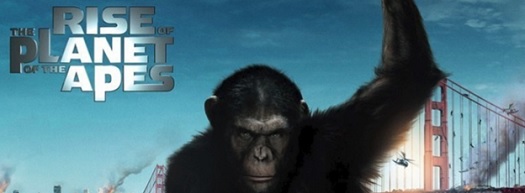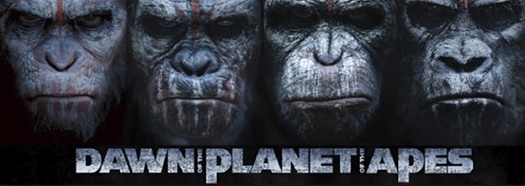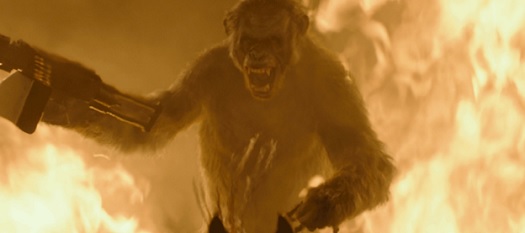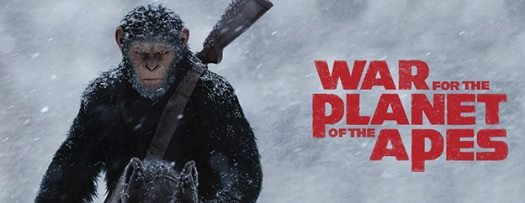Intermarkets' Privacy Policy
Donate to Ace of Spades HQ!
aceofspadeshq at gee mail.com
Buck:
buck.throckmorton at protonmail.com
CBD:
cbd at cutjibnewsletter.com
joe mannix:
mannix2024 at proton.me
MisHum:
petmorons at gee mail.com
J.J. Sefton:
sefton at cutjibnewsletter.com
Wednesday Overnight Open Thread - March 4, 2026 [Doof]
Sea Lion Tamers Cafe
Quick Hits
"Thousands" Of US-Aligned Iraqi Kurds Stage Ground Invasion of Iran
Schmoll: Republicans Pull Dead Even with Democrats in Congressional Midterm Race, 50/50
"Big Tish" James, AG and Celebrated Mortage Fraudster, Orders NY Hospital to Resume Transitioning Children After It Quits the Grisly Business
Tim Walz, Keith Ellison Face Congressmen on the Rampant Fraud They Encouraged and Enabled
That Thing That Never Happens Happened Again
Stephen Colbert's Election Interference Stunt/Hoax Works as the Democrat Establishment Fights Dirty to Block a Proud Black Woman from Attaining Higher Office
Jim Sunk New Dawn 2025
Jewells45 2025
Bandersnatch 2024
GnuBreed 2024
Captain Hate 2023
moon_over_vermont 2023
westminsterdogshow 2023
Ann Wilson(Empire1) 2022
Dave In Texas 2022
Jesse in D.C. 2022
OregonMuse 2022
redc1c4 2021
Tami 2021
Chavez the Hugo 2020
Ibguy 2020
Rickl 2019
Joffen 2014
maildrop62 at proton dot me
Saturday Evening Movie Thread 06-15-2019 [Hosted By: TheJamesMadison]
The Second Time Around

For the kinds of stories that lend themselves to serialized storytelling in the motion picture medium, sometimes the second time around can prove more fruitful than the first. In the first, the story is concerned with origins of characters, conflicts, and settings. Oftentimes the first half of that first film is dedicated to simply explaining things.
Given a second two-hour timeframe to tell a story in the same universe with the same characters and suddenly that legwork isn't necessary. You don't have to explain everyone's relationships, the setting, and the overall conflicts. The audience should walk into the movie with the first film in the back of their minds. It's one way that franchise films actually operate differently from completely stand-alone movies. Franchise films are allowed a shorthand on certain key elements that allow for greater emphasis on more pressing storytelling elements like the plot and theme of the story at hand.
So, we can all think of second films that work better than the first, but I want to focus on one recent series that simply got better with every subsequent film: The Planet of the Apes trilogy.
Rise of the Planet of the Apes

Really, this one should have been titled Dawn and the second should have been titled Rise, but whatever. No one was thinking that far ahead.
I remember when the trailers came out for this, and no one seemed excited about it. We've been knee-deep in remakes of classics from the 60s through the 90s for years. One more prequel, sequel, reboot, pre-seq-re-sequel wasn't going to rise to the top of the pack by its IP alone. There were other, more immediate, Intellectual Properties trying to catch eyeballs and dollars than a Planet of the Apes thing.
But then it came out, reviews started reaching the world, and everyone was surprised. The movie wasn't great, but there were parts of the movie that certainly were. The story is about a scientist (played unconvincingly by James Franco) who develops a virus based gene therapy for chimps that increases their intelligence. He raises a chimp named Caesar (played marvelously by Andy Serkis under a layer of CGI) with these advantages. And therein lies the movie. On the one hand, we have the humans who are largely uninteresting cutouts rather than characters, and on the other we have the apes who are uniformly fantastic. By about the halfway point, the focus leans more towards the apes than the humans, so we end up realizing that the main character isn't Franco, but Caesar.
Caesar releases the same virus gene therapy he received (through his mother, don't get pedantic, I know the movie) on his fellow captives in a zoo-like enclosure and leads a small rebellion and escape across San Francisco, over the Golden Gate Bridge, and into the Redwood Forest. The action is well-lensed and Caesar's journey from innocent ape to reluctant leader is convincing. It's a solid movie, but, as a whole, not that special.
Dawn of the Planet of the Apes

Released a few years later with a new director, Matt Reeves, this got a bit more positive buzz before its release. We had seen Rise, knew there was promise and no James Franco, and were cautiously excited. Reeves had also directed the better than it should have been remake of the Swedish horror film Let the Right One In, Let Me In.
Dawn is a solid step better than Rise, but it shares a bit of the same issues with its predecessors. The human characters are improved. Instead of James Franco we have Jason Clarke and Gary Oldman, which is a definite step up. The characters, especially Oldman's, are more interesting than the generic scientist man and corporate boss man in the original, but they still pale horribly in comparison to Caesar.
Caesar, still utterly convincing CGI draped over Andy Serkis's unitard body, has hardened since we last saw him. He's led his people to carving out a tough existence in the forest away from any contact with humanity. He's also a father and family man (ape?). He doesn't just have an ideal of freedom and his own comfort to fight for, he has a people and a family to protect.
When apes and humans come into contact again, it's because the humans have left San Francisco in search of a hydroelectric dam hidden in the forest that they hope to get running again to provide them power in the upcoming winter. There's immediate distrust, but Caesar allows the humans their work under close supervision after he receives promises that the humans will make no encroachments on the ape's homes.
There is another ape, though, who simply cannot trust humans. Koba, who was in the first film, had a long history of being experimented on by human scientists and simply refuses to allow any charitable explanation for the humans' excursion out of their city. He doesn't believe they are capable of good, and if they won't start the fight he knows they want, he'll help them along.
That above scene is where the aggression between human and ape actually begins, and it's great. Koba knows exactly how to play the humans, having learned in his time moving from one lab to the next, until he teaches them that they shouldn't have trusted him. He's vicious and everything he thinks humans are. Maybe it's not his fault that he is that way, but the two men he kills are also not the ones who did the harm to him. They don't deserve it, and Koba is evil for doing what he did. There's no ambiguity around that. In fact, he takes it a step further and uses the weapons he gathers there to frame humans for a hit on Caesar.
The conflict that ends up developing isn't around humans versus apes, but between ideologies. We see the same conflict within the humans as Oldman and Clarke pit themselves against each other in the same way that Caesar and Koba do. The movie is a mature exploration of distrust, power, and violence. Oh, and it has monkeys firing automatic weapons while riding on horseback through fire:

That is just awesome.
War for the Planet of the Apes

Do you remember what the major flagging elements were in the previous two movies? The humans. They were borderline bad in the first and largely competently written in the second. You know what they are in the third? Fantastic.
Finally, the series put everything together, and we got a legitimately great genre picture that explores themes in mature ways while also delivering genre thrills.
First, I've already talked about how great Caesar is, and he continues to be here, but let's take a moment to talk about the new human: Woody Harrelson as The Colonel.
This isn't the first time Caesar has had a direct antagonist, but this is the first antagonist worthy of him. The Colonel is man driven by a higher ideal and the need for survival. When we first see him, he sneaks into Caesar's home and kills Caesar's family himself. We're automatically told to hate him. We don't see him again for a while, but we do see the results of some of his methods, which includes the killing of his own men without explanation.
When Caesar and The Colonel meet face to face at the Colonel's base, he seems almost like a man crazed with religious fervor for his cause, and we learn the cause. He's not mad at apes because of the virus that wiped out most of humanity, as the humans in Dawn were. He's not mad at apes because he's an asshole, as the humans in Rise were. No, he's mad at apes because they carry the virus, which has morphed and turned on humanity. Humans are no longer either dying or immune, those left with their immunity are now beginning to descend into the dumb primates we know from the very original Planet of the Apes movie. Humanity is descending from creatures of reason and high learning into beasts who cannot speak or think beyond finding their next meal. The Colonel wants to save humanity, and he's completely right when he says that it's either humanity or the apes.
The scene is quiet, but absolutely electric:
Here we have two foes that cannot exist at the same time in the same place. The existence of one means the destruction of the other. This isn't a conflict that can be resolved through words, but only violence. And how does the movie come to that violence? Spoilers!
It's a quiet resolution to a conflict only ever fought quietly, even in the midst of larger settings. It's perfect.
There's obviously more to the film. Caesar is haunted by visions of Koba. He has to deal with traitors in his own midst and appeal to apes helping the humans. There's a mute human girl named Nova (just a reference to the original's Nova, not supposed to actually be her) that Caesar ends up reluctantly taking under his protection. There's really no false note to the film. It's an exquisite conclusion to a trilogy of films that was born of a need to take advantage of an unused IP.
Back to the Point
So, in my opinion at least, the recent iteration of Planet of the Apes simply got better with every movie. Working within the same universe without the baggage of an origin movie and building off of the strengths while correcting the mistakes of the films that came before, provided a blueprint for the filmmakers to expand and deepen the material. They were able to use the previous films as starting points to explore new characters, new settings within the world, and similar themes without needing to take forty-five minutes to establish everything.
It's reasonable for the filmmakers to expect the audience to walk in knowing who Caesar is and the outline of his backstory, that humanity had been nearly wiped out, and that apes were now smart. Even if an individual audience member doesn't know it all, though, the filmmakers trust the audience to be smart enough to pay attention, appropriately suspend disbelief, and go along for the ride.
It really is unfortunate that more franchises don't treat their sequels as opportunities to expand rather than contract or retread.
Halloween II

So, I have to dig into this example. Halloween from 1978 is one of the great horror films. It's tense, really well constructed, and scary, all without getting too gory. It launched the 80s version of the slasher craze, and when Universal came to John Carpenter asking him to write a sequel, he ended up producing a movie that was nothing more than a bad Halloween imitation. Gone is any real sense of tension. Instead we get dumb teenagers and young adults who follow slasher movie tropes on the way to gory deaths.
Instead of asking questions about Michael Myers and trying to explore the ideas behind a faceless killer and how it can affect the world around him, he becomes a less interesting version of what he was in the original. Even the original elements that are there are misused, especially Laurie Strode who spends the first 75% of the movie in a hospital bed doing nothing (probably some of the easiest money Jamie Lee Curtis ever made). There was opportunity, but it was all squandered.
The new Halloween film made by David Gordon Greene does more with the idea. Myers is pure evil, he decided, so there's no development on him directly. However, how the town of Haddonfield reacts to him changed. People want more of an explanation of his actions other than he's evil, and in their search for more than what's there, they release evil upon the world. Laurie Strode didn't just move on with her life, she was scarred deeply by her experience and can't move on. It's an interesting direction to take. The movie isn't completely successful (I pretty much agree completely with RedLetterMedia's review, especially about the out of place humor), but it actually tries to take the franchise in a direction it hadn't gone before and explore a theme related to the original without repeating it.
So...
So there's my take on Northernlurker's suggestion in the comments of my last thread:

What are some sequels that you thought did better than the original?
Movies of Today
Opening in Theaters:
Men in Black: International
Shaft
The Dead Don't Die
Next in my Netflix Queue:
Whiplash
Movies I Saw This Fortnight:
Aladdin (Netflix Rating 3/5 | Quality Rating 2.5/4) Full Review Poster blurb: "I was actually along with it for a while, but the movie kind of got bogged down in its final act that ended up dragging the rest of the movie down with it." [Theater]
Sawdust and Tinsel (Netflix Rating 5/5 | Quality Rating 3.5/4) Full Review "What’s behind her artifice of cheap costumes and cheap perfume? A beautiful woman who loves him and stays with him." [Personal Collection]
Velvet Buzzsaw (Netflix Rating 5/5 | Quality Rating 3.5/4) Full Review "When I figured this out, my appreciation of the movie jumped. I went from thinking it was pretty good to really good." [Netflix Instant]
All These Women (Netflix Rating 2/5 | Quality Rating 1/4) Full Review "What we get instead are a series of sketches or bits that would feel appropriate as filler in a silent comedy." [Personal Collection]
Halloween (Netflix Rating 4/5 | Quality Rating 3/4) Full Review "Here’s to hoping that if they do film a second film, that they work on getting a more effective and consistent tone." [HBO]
Europa Europa (Netflix Rating 4/5 | Quality Rating 3/4) Full Review "I really liked it, and the defense that “It actually happened that way” (assuming it did), doesn’t alleviate the fact that the ending ends up silly." ["Library"]
The Edge of Seventeen (Netflix Rating 5/5 | Quality Rating 3.5/4) Full Review "It’s not a complicated movie. It’s simply a well told story, and it works really well." [Netflix Instant]
Bad Times at the El Royale (Netflix Rating 5/5 | Quality Rating 3.5/4) Full Review "That can be both entertaining and frustrating, and the movie ends up working more towards the former than the latter." [HBO]
Contact
Email any suggestions or questions to thejamesmadison.aos at symbol gmail dot com.
Follow me on Twitter.
I've also archived all the old posts here, by request. I'll add new posts a week after they originally post at the HQ.
Biden's Dog sniffs a whole lotta malarkey, : "BOING! ..."
m: "Pixy's up! ..."
Tuna: "Morning all ..."
Pete Bog: "Morning! ..."
Romeo13: "481 Azerbaijan, welcome to the club! Open Sourc ..."
Biden's Dog sniffs a whole lotta malarkey, : "The definition of insanity: [i]Open Source Inte ..."
Biden's Dog sniffs a whole lotta malarkey, : "Azerbaijan, welcome to the club! [i]Open Source ..."
Biden's Dog sniffs a whole lotta malarkey, : "does it seem like the number/amount of incoming is ..."
TheCatAttackedMyFoot: "Advertise Here! ..."
Bilwis Devourer of Innocent Souls, I'm starvin' over here: "does it seem like the number/amount of incoming is ..."
Bilwis Devourer of Innocent Souls, I'm starvin' over here: "stay safe, BD ..."
Wednesday Overnight Open Thread - March 4, 2026 [Doof]
Sea Lion Tamers Cafe
Quick Hits
"Thousands" Of US-Aligned Iraqi Kurds Stage Ground Invasion of Iran
Schmoll: Republicans Pull Dead Even with Democrats in Congressional Midterm Race, 50/50
"Big Tish" James, AG and Celebrated Mortage Fraudster, Orders NY Hospital to Resume Transitioning Children After It Quits the Grisly Business
Tim Walz, Keith Ellison Face Congressmen on the Rampant Fraud They Encouraged and Enabled
That Thing That Never Happens Happened Again
Stephen Colbert's Election Interference Stunt/Hoax Works as the Democrat Establishment Fights Dirty to Block a Proud Black Woman from Attaining Higher Office
Paul Anka Haiku Contest Announcement
Integrity SAT's: Entrance Exam for Paul Anka's Band
AllahPundit's Paul Anka 45's Collection
AnkaPundit: Paul Anka Takes Over the Site for a Weekend (Continues through to Monday's postings)
George Bush Slices Don Rumsfeld Like an F*ckin' Hammer
Democratic Forays into Erotica
New Shows On Gore's DNC/MTV Network
Nicknames for Potatoes, By People Who Really Hate Potatoes
Star Wars Euphemisms for Self-Abuse
Signs You're at an Iraqi "Wedding Party"
Signs Your Clown Has Gone Bad
Signs That You, Geroge Michael, Should Probably Just Give It Up
Signs of Hip-Hop Influence on John Kerry
NYT Headlines Spinning Bush's Jobs Boom
Things People Are More Likely to Say Than "Did You Hear What Al Franken Said Yesterday?"
Signs that Paul Krugman Has Lost His Frickin' Mind
All-Time Best NBA Players, According to Senator Robert Byrd
Other Bad Things About the Jews, According to the Koran
Signs That David Letterman Just Doesn't Care Anymore
Examples of Bob Kerrey's Insufferable Racial Jackassery
Signs Andy Rooney Is Going Senile
Other Judgments Dick Clarke Made About Condi Rice Based on Her Appearance
Collective Names for Groups of People
John Kerry's Other Vietnam Super-Pets
Cool Things About the XM8 Assault Rifle
Media-Approved Facts About the Democrat Spy
Changes to Make Christianity More "Inclusive"
Secret John Kerry Senatorial Accomplishments
John Edwards Campaign Excuses
John Kerry Pick-Up Lines
Changes Liberal Senator George Michell Will Make at Disney
Torments in Dog-Hell
The Ace of Spades HQ Sex-for-Money Skankathon
A D&D Guide to the Democratic Candidates
Margaret Cho: Just Not Funny
More Margaret Cho Abuse
Margaret Cho: Still Not Funny
Iraqi Prisoner Claims He Was Raped... By Woman
Wonkette Announces "Morning Zoo" Format
John Kerry's "Plan" Causes Surrender of Moqtada al-Sadr's Militia
World Muslim Leaders Apologize for Nick Berg's Beheading
Michael Moore Goes on Lunchtime Manhattan Death-Spree
Milestone: Oliver Willis Posts 400th "Fake News Article" Referencing Britney Spears
Liberal Economists Rue a "New Decade of Greed"
Artificial Insouciance: Maureen Dowd's Word Processor Revolts Against Her Numbing Imbecility
Intelligence Officials Eye Blogs for Tips
They Done Found Us Out, Cletus: Intrepid Internet Detective Figures Out Our Master Plan
Shock: Josh Marshall Almost Mentions Sarin Discovery in Iraq
Leather-Clad Biker Freaks Terrorize Australian Town
When Clinton Was President, Torture Was Cool
What Wonkette Means When She Explains What Tina Brown Means
Wonkette's Stand-Up Act
Wankette HQ Gay-Rumors Du Jour
Here's What's Bugging Me: Goose and Slider
My Own Micah Wright Style Confession of Dishonesty
Outraged "Conservatives" React to the FMA
An On-Line Impression of Dennis Miller Having Sex with a Kodiak Bear
The Story the Rightwing Media Refuses to Report!
Our Lunch with David "Glengarry Glen Ross" Mamet
The House of Love: Paul Krugman
A Michael Moore Mystery (TM)
The Dowd-O-Matic!
Liberal Consistency and Other Myths
Kepler's Laws of Liberal Media Bias
John Kerry-- The Splunge! Candidate
"Divisive" Politics & "Attacks on Patriotism" (very long)
The Donkey ("The Raven" parody)

